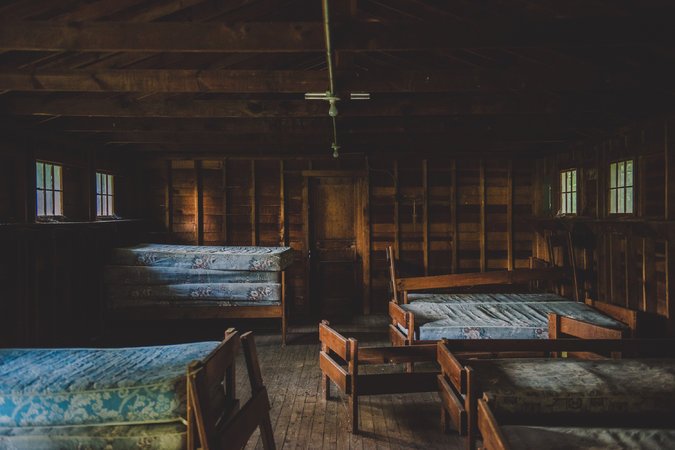‘This Is Bee Paradise’
HINTON, W.Va. — “Solar’s not going to be everything, and one of the big challenges for the state is how do we diversify and get lots of cool stuff going,” Mr. Conant, the Solar Holler founder, was saying as he drove from a solar installation at a hilltop farmhouse toward a 1940s summer camp that the local coal company provided for the children of its employees until 1984. “When you’ve been a one-industry town for a really long time, that’s an issue. The last thing we would want to do is pin our hopes on doing that again, just with some other technology.”
After winding down a road canopied by emerald-green trees, he passed the opening of the Great Bend Tunnel, during whose construction in the 1870s, as one legend tells it, the African-American folk hero John Henry beat a steam drill in opening a hole in the rock, only to die from his efforts. Minutes later, Mr. Conant came to Camp Lightfoot, which a nonprofit organization, Appalachian Headwaters, is turning into an apiary with an eye toward helping displaced coal workers and military veterans get into the honey business. Early next year, Mr. Conant plans to install solar panels on an old gymnasium, which now holds racks of wood frames for the hives.
Deborah Delaney, an assistant professor of entomology and wildlife ecology who oversees the apiary and bee program at the University of Delaware, said the area was well suited for a honey enterprise. It is largely forest, unsullied by the pesticides that threaten the insects in industrial farm areas, and it has plant species like black locust and sourwood whose honey can fetch a high price.
“This is bee paradise,” she said, sitting on the porch of the cafeteria building where a Patriot Coal banner hung askew on one wall. For now, Ms. Delaney and the program’s staff are getting the colony established on a hillside in 86 hives that buzz away behind electrified wire fencing to protect them from bears. Next spring, they plan to distribute about 150 hives to 35 beekeepers either free or through a low- or no-interest loan. Come harvest time, the beekeepers would bring their honey-laden frames to the camp for extraction and processing; organizers would pay them for their yield and then sell the honey to support the program.

“For some people it might be a side hustle, but for other people it could really turn into, over time, a true income that could sustain a family,” said Kate Asquith, program director at Appalachian Headwaters.
Advertisement
Continue reading the main story
Economists say this kind of diversification is important, especially in a region where coal is unlikely to make a major comeback, even if Trump administration policies are able to foster a revival elsewhere. Demand is strongest for the low-sulfur coal from the Powder River Basin straddling Wyoming and Montana, rather than what Appalachia produces. The new-energy industries cannot replicate what coal once did, economists say. Long-term jobs at the Wyoming wind farm would number in the hundreds at best, while the solar program thus far trains only 10 workers each year.
Even a coal boom wouldn’t create jobs the way it used to: like the steam drill that ultimately took John Henry’s place, new equipment and technologies have replaced workers in heavy industries. Production of coal, for instance, increased over all from the 1920s until 2010, while the number of jobs dropped to 110,000 from 870,000.
So interest in the bees has been high here. “Thought it was weird at first — bugs in a box in the backyard,” said Sean Phelps, 27, who left a secure job as a school janitor to work with the bee program. Exposure to his father-in-law’s hives changed his perspective. Now he sees them as a way to help the area, as well as fun. “This is what I want to do,” he said. “Whenever you’re out in them, it reduces a lot of stress.”
Continue reading the main story
Article source: https://www.nytimes.com/2017/09/30/business/energy-environment/coal-alternative-energy-jobs.html?partner=rss&emc=rss
Speak Your Mind
You must be logged in to post a comment.